"You're not ready to go down on me?" The Bold Type's "proud Muslim lesbian," Adena, says to her new girlfriend, Kat, during a posh party in the second-season opener of television's arguably most intersectional feminist series.
When audiences last saw Kat -- one of the show's lead characters, who is also biracial and bisexual -- she'd left behind her safe life hiding behind 2 million Twitter followers as social media director of the Cosmopolitan-esque magazine Scarlet. She followed her heart to Peru, where Adena, an Iranian citizen who was turned away by U S. customs while awaiting a work visa, had landed for a new adventure.
Upon their return to New York City, Kat flew headlong into proclaiming her adoration for her new girlfriend via her own Twitter and Instagram accounts -- even if she hadn't actually gone there, as in down there. While Adena's query in the middle of a Scarlet party was poorly timed -- and, of course, overheard -- frank discussions around women's sexual agency and women asking for what they want is right on time and completely indicative of this forward-thinking series.
It's no great surprise that Freeform's breakout hit of last summer -- which stars Aisha Dee as Kat, Meghann Fahy as Sutton, and Katie Stevens as Jane, best friends traversing career, love, and the current state of politics in and around a socially conscious women's magazine --would provide queer women with one of the few honest discussions about oral sex between women ever on film or television, if not the only one. Still, the candor was long overdue and nothing short of breathtaking for women who've never heard their sex legitimized so matter-of-factly.
Sure, The L Word had its moments of explicit sexual talk, but that was often played for humor or to shock. And lesbian cinema has graduated from gauzy sex scenes under billowing curtains loaded with soft caresses to scenes like the one in Carol in which the younger Therese flashes her agency by demanding of Carol, "Take me to bed." But the discussion about "cunnilingus" -- in quotes because Adena actually says the word during prime time -- on The Bold Type is completely honest, refreshing, and emblematic of the show's commitment to pushing the needle forward in real ways for women.
"When I read the script, I don't even think I understood on that level the importance of having a conversation like this," Nikohl Boosheri, who plays Adena, tells The Advocate. "I think for me, it was even shocking, you know, our own conditioning. I was feeling a little scared or bashful to have the conversation because, even as women, even in heterosexual relationships, you don't very often see women being so forthcoming and open and owning their sexuality like that rather than seeing their needs as something shameful."
Boosheri has been doing plenty of press for the series, especially since the audience reaction to Kat and Adena's story was so positive and necessary that she was made a series regular after the first season. She says she's heard before that queer women have never heard sex discussed so honestly in pop culture before (let alone on the network that was formerly ABC Family and housed the uber-religious The 700 Club).
"It blew my mind. What? Not in TV? Not in film? Never?" she says of her reaction to the dearth of genuine conversations around sex for lesbian and bisexual women.
The Bold Type's freshman season approached audacious topics, including first orgasms, controversial testing of women in their 20s for the breast cancer gene, immigration issues under Donald Trump's draconian policies, and Kat's evolution as a young woman realizing she's bisexual. Yet the first season finale had perhaps the most prescient storyline from the show's first 10 episodes. It revolved around an artist who illustrated carrying the weight of her rape in an ongoing performance piece in Central Park that relied on social media to get the word out, thereby anticipating the #MeToo reckoning by months.

Aisha Dee
The first season even included Kat and Adena in a tender, passionate scene that was a prelude to sex. But as Adena explains to Kat when they finally talk out why Kat has yet to go down on the woman she's so into, "You know, Kat, it's not even the act that matters. It's me and you being able to have these conversations. Talking about it is the most intimate thing."
"At first, it never occurs to me, 'What is the political impact of this speech?'" Dee tells The Advocate of the moment she read the script for the scenes about oral sex. "I'm always coming at it from an emotional place."
Dee says that once the impact of the discussion hit her, it became imperative to her that the story is told.
"It wasn't until after the table read that I was like, Oh, wow, this is kind of revolutionary. And then I had the thought of, Oh, God, I hope no one takes this away from me. I don't want anyone to cut this scene and I don't want anyone to mess with this scene." Dee says. "Then I became protective of it because I was determined that it had to happen."
"We really need to be talking about this because it's about time that LGBT couples got the same treatment as straight couples," she adds. "And I think that's one of the great things about the show is that they treat every couple with the same care and respect whether it's romantic or platonic or they're best friends or coworkers."
At the risk of spoiling it for those who've yet to watch the premiere, Dee had nothing to worry about. That scene did happen, as did an intimate, steamy sex scene in which overachiever Kat not only goes down on her girlfriend but does so with great success that culminates in what viewers can only assume is an orgasm.
Still, Kat, The Bold Type, and Freeform had more of the story to tell when Kat meets up with Jane and Sutton at a trendy juice joint the next morning to relay the specifics of her first time going down on a woman. As befits their friendship, Jane and Sutton are completely supportive, encouraging, and happy for their friend who's just shared details of owning her sexuality and desire.

Meghann Fahy, Melora Hardin, Katie Stevens, Nikohl Boosheri, and Dee
Both Dee and Boosheri credit the network for standing by the show's breakthrough and possibly controversial storylines. Boosheri watched the season premiere at the television conference ATX in Austin recently and says the final cut of the sex scene surprised even her.
"I was watching Aisha's and my sex scene and I was like, Whoa, holy shit. They chose that shot?" she says. "We forget when we're shooting that we are on Disney [the network's parent company]. We are on Freeform. I think they're doing a really good job being so supportive and so open to telling the story best way we can."
But that sex scene and the candor around discussing sex between women adds up to more than what is on the page. From the outset, The Bold Type sought to tell impactful stories with a lot of humor and a lot of heart. Dee, 24, and Boosheri, 28, knew early on in the first season that Kat and Adena, individually and as a couple, would resonate. And they have, especially for queer women of color. They both share stories of fans who've told them the show has helped them come out to their families.
Since the show premiered last summer, Boosheri, who starred in the 2011 lesbian-themed film Circumstance, says she's received "really moving messages and comments about people we inspired to be their authentic selves and to find a community that supports them and hopefully try to be open about who they are to the people that they love."
"I think it's really inspiring to see their family and friends not treat it like it's this taboo subject," she says.
Both women are careful to clarify that they realize the stories The Bold Type tells may not resonate for everyone. But they hope to reach the most people by being as authentic as possible.
"There is this pressure when you're playing a character who is kind of underrepresented to do it right," Dee says. "You want to tell everyone's story and you can't. You just have to tell one person's story. So that's really where we're coming from is just being as specific as possible. And that actually makes it more relatable. Because whether or not it's exactly the same as your story, if it's truthful, you can connect to it."

Dee and Boosheri
For all of its dauntless intersectional storytelling, including depicting television's first Muslim lesbian character, The Bold Type's first season avoided tackling Kat's biracial identity, an omission the show makes right early in the second season with an episode in which Kat is confronted with whether to call out her identity as a woman of color in her new bio for the magazine.
"We covered so many things in the first season, but that was one thing that I was like, When are we going talk about it?" Dee says. "It's this elephant in the room that Kat is this woman of color but she doesn't seem to be aware of it."
"She talks about being put in a box," Dee says of Kat's arc in hesitating to own being biracial in her bio. "It makes it easier for other people when they can define you when you're black or you're white, but it's harder when you have both. And that's a story that's never been told before, so I feel very honored to tell it."

Boosheri
The series that continues to eschew stereotypes, including tearing down the tired trope of the dragon lady boss in the form of Scarlet's compassionate editor in chief, Jacqueline (Melora Hardin), has just kicked off its sophomore season. And the anticipation around what the show will investigate next in its signature style is palpable.
"I'm excited about the show to be breaking so many stereotypes about women about the work world, about how women treat each other, about Muslim women," Boosheri says. "There's always a danger when you are a first of something or when there's so few that all sorts of audiences are going to be looking at you to represent their experiences and their feelings, and you just can't do that with one storyline, unfortunately. But I really hope that this sends a message that we need more. People want it. I hope it's not just the exception and it becomes more the rule."
Watch an exclusive clip of Kat and Adena's discussion from The Bold Type below.


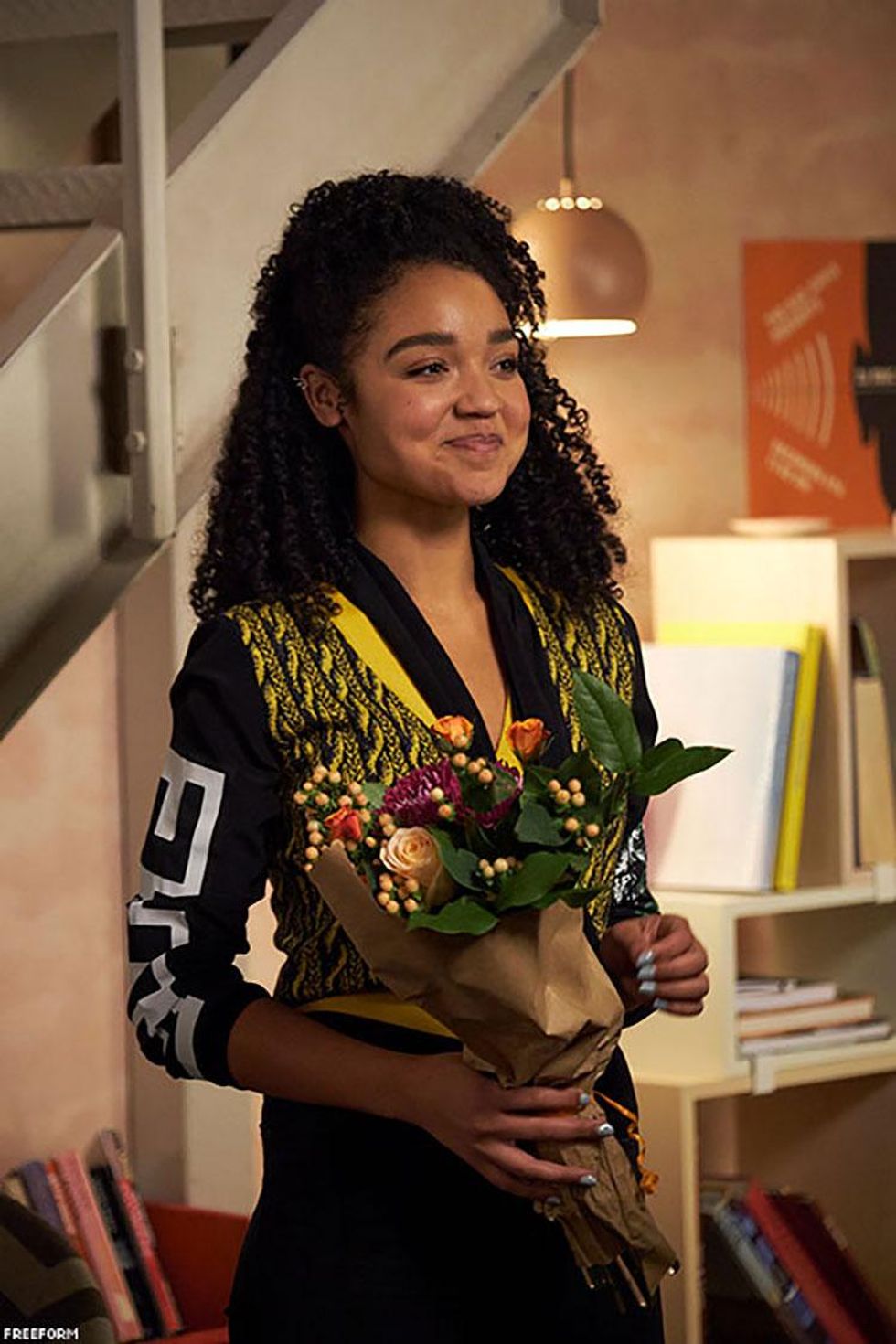
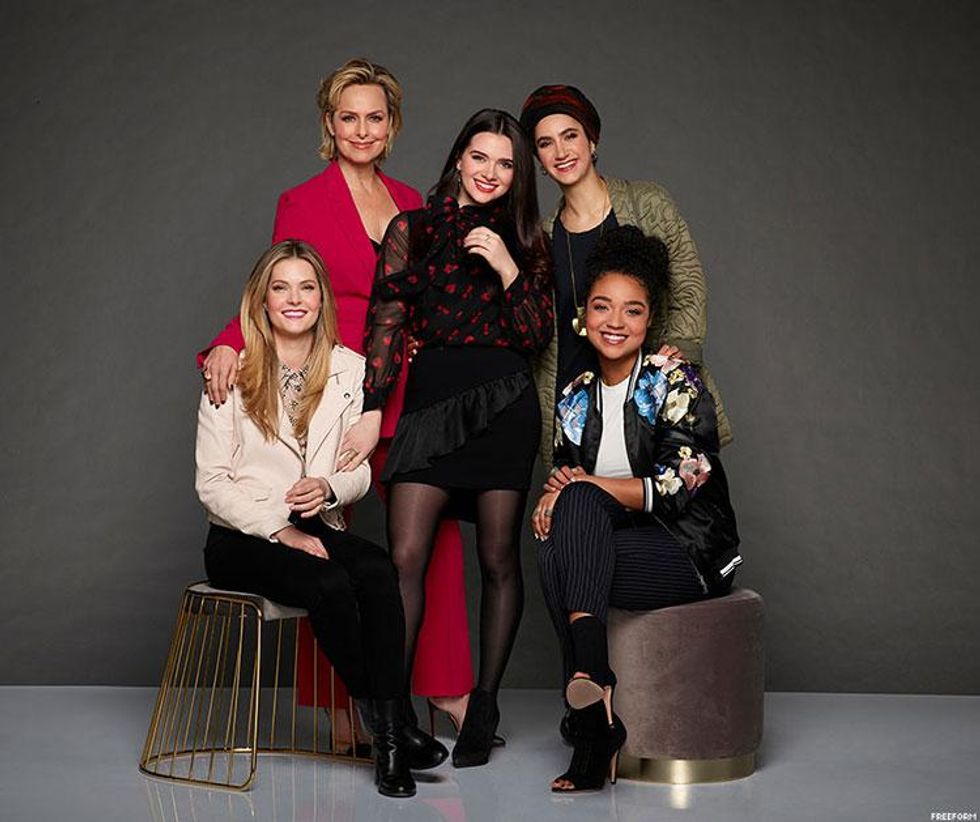
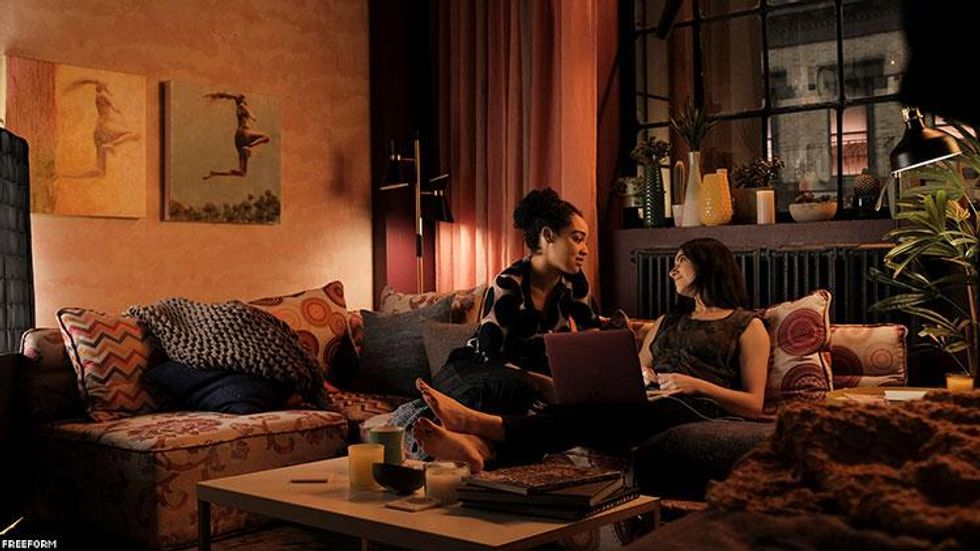
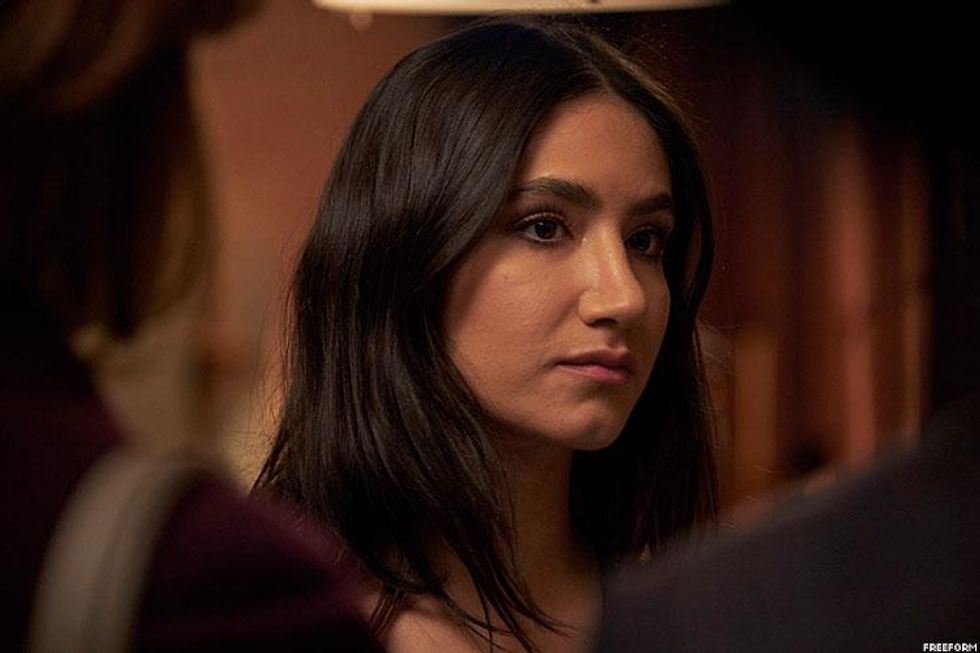
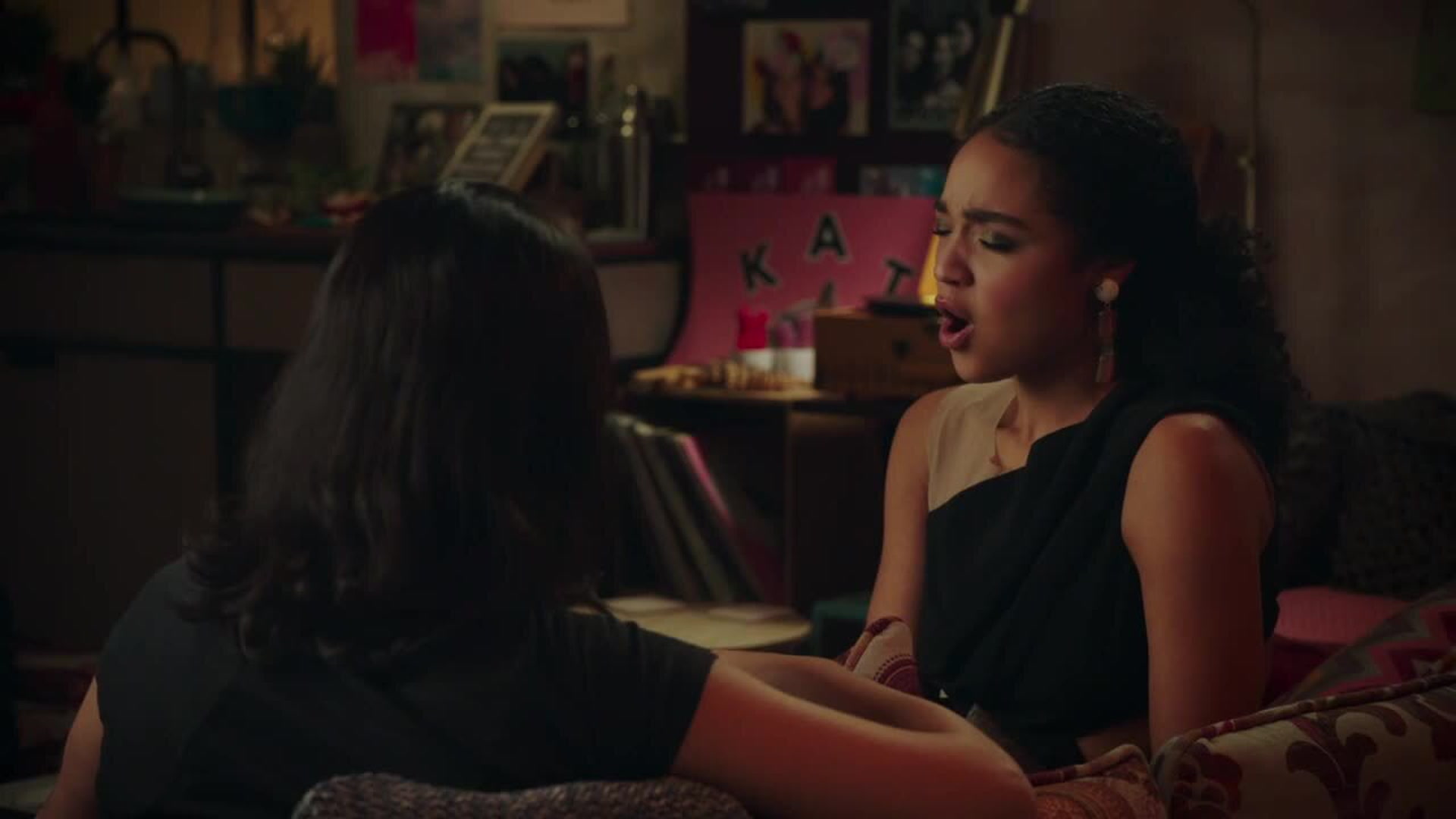



































































Charlie Kirk DID say stoning gay people was the 'perfect law' — and these other heinous quotes